Testimonial
The MSc Epidemiology taught me much that I use every day. Yes, you learn the principles of good research, to be an epidemiologist, but you learn much more than that. The program taught me how to think critically about complex problems, about potential solutions, and about how to evaluate those solutions. Just one small warning: you will never read the health section of the newspaper the same way again.
Jacob Burns, research associate at LMU Munich
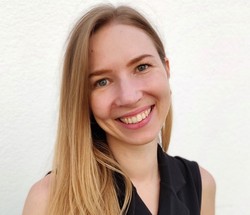 The MSc Epidemiology has been an incredible experience. I’ve learnt a huge amount about analysing data and conducting quality research, but the highlight for me has been working with other students from all over the world and getting a truly international perspective on health and epidemiology. The internships offer a unique opportunity to apply your knowledge and skills, which is really useful when considering what direction you want to take your career in later. I’m excited to now use what I’ve learnt at the IBE working in the response to the COVID-19 pandemic.
The MSc Epidemiology has been an incredible experience. I’ve learnt a huge amount about analysing data and conducting quality research, but the highlight for me has been working with other students from all over the world and getting a truly international perspective on health and epidemiology. The internships offer a unique opportunity to apply your knowledge and skills, which is really useful when considering what direction you want to take your career in later. I’m excited to now use what I’ve learnt at the IBE working in the response to the COVID-19 pandemic.
Alethea Charlton, epidemiologist at Public Health England
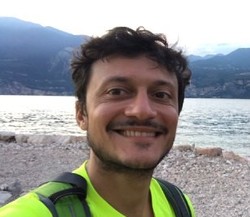 What distinguishes pursuing the MSc of Epidemiology at the IBE is not only receiving a top-notch education with insights into the most recent and discussed epidemiological topics. It is also the program’s aim to tailor your exact needs and interests. Between the internships and electives, you get the chance to focus on the topics you are passionate about. This is of course only possible with the friendly guidance and the encouragement of the fine people behind the program.
What distinguishes pursuing the MSc of Epidemiology at the IBE is not only receiving a top-notch education with insights into the most recent and discussed epidemiological topics. It is also the program’s aim to tailor your exact needs and interests. Between the internships and electives, you get the chance to focus on the topics you are passionate about. This is of course only possible with the friendly guidance and the encouragement of the fine people behind the program.
Basel Habboub, LMU Munich
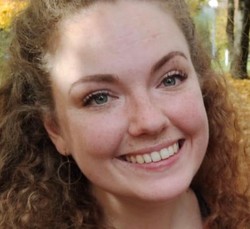 What I enjoyed particularly about this degree was that it gives a good foundation in epidemiology while staying close to the practical application. The internship allowed me and my classmates to set foot into the professional world and learn about possible career paths, like in my case the reinsurance industry that I had not considered before. During the specializations we had the chance to learn from people in the field, who are using the newest research methods. Additionally, the intercultural exchange between students of all different nationalities is an experience that I would not have wanted to miss out on.
What I enjoyed particularly about this degree was that it gives a good foundation in epidemiology while staying close to the practical application. The internship allowed me and my classmates to set foot into the professional world and learn about possible career paths, like in my case the reinsurance industry that I had not considered before. During the specializations we had the chance to learn from people in the field, who are using the newest research methods. Additionally, the intercultural exchange between students of all different nationalities is an experience that I would not have wanted to miss out on.
Patricia Purschke, International Graduate Trainee at Munich Re
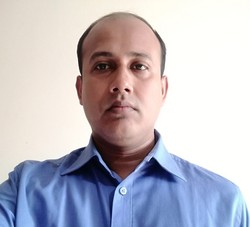 It is my great pleasure that I am an alumni of the Institute for Medical Information Processing, Biometry and Epidemiology at LMU Munich. I believe that IBE has helped me to shape the gamut of my knowledge by providing guidance and company of some adroit academicians. The facilities that I enjoyed during my journey at IBE were definitely praiseworthy. I feel the teaching staffs of IBE are willing to provide their best and always try to address the contemporary contents in their lectures, as well as they are so generous to help the students in and out sides of class. I would like to give a big hand to the course coordinator for her sincerity, help and guidance throughout my time at IBE.
It is my great pleasure that I am an alumni of the Institute for Medical Information Processing, Biometry and Epidemiology at LMU Munich. I believe that IBE has helped me to shape the gamut of my knowledge by providing guidance and company of some adroit academicians. The facilities that I enjoyed during my journey at IBE were definitely praiseworthy. I feel the teaching staffs of IBE are willing to provide their best and always try to address the contemporary contents in their lectures, as well as they are so generous to help the students in and out sides of class. I would like to give a big hand to the course coordinator for her sincerity, help and guidance throughout my time at IBE.
Md Sohel Rana, Assistant Professor , Department of Statistics, Comilla University, Bangladesh
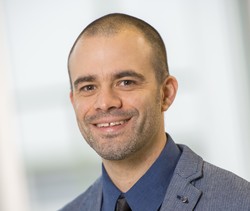 I struggled with the decision to leave home to pursue education abroad, but coming to LMU for the master’s program in epidemiology turned out to be an excellent decision. The program covers core epidemiological concepts, including study design and statistical methods, and offers topics of interest for deeper study. I learned to read scientific papers with a critical eye, and am now a published author myself. The required internships enable the students to put their skills into practice, and, for me, the placement developed into a rewarding job following graduation. The lecturers and staff care about the students, helping both academically and with integration. Finally, I made many new friends, both German and international - friends with the shared ideal of improving society through epidemiological health research.
I struggled with the decision to leave home to pursue education abroad, but coming to LMU for the master’s program in epidemiology turned out to be an excellent decision. The program covers core epidemiological concepts, including study design and statistical methods, and offers topics of interest for deeper study. I learned to read scientific papers with a critical eye, and am now a published author myself. The required internships enable the students to put their skills into practice, and, for me, the placement developed into a rewarding job following graduation. The lecturers and staff care about the students, helping both academically and with integration. Finally, I made many new friends, both German and international - friends with the shared ideal of improving society through epidemiological health research.
Rory Wilson, scientist, Helmholtz Zentrum München


